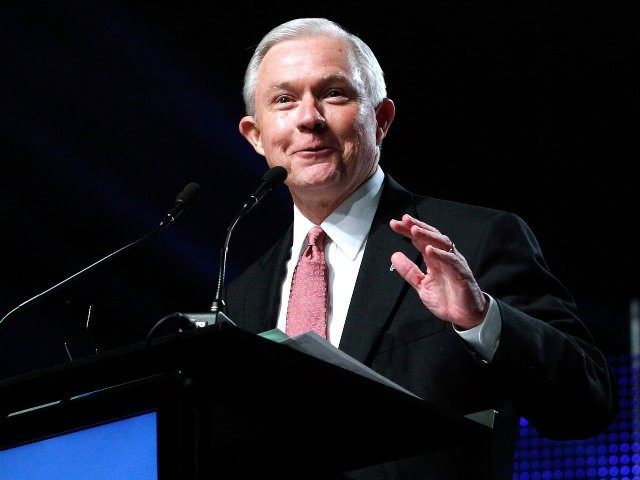Sen. Jeff Sessions (R-AL) is firing back at The Wall Street Journal for a second time this month. On this occasion, the Alabamian is responding to a WSJ editorial accusing him of “scare mongering” the fast-track trade deal before Congress and hurting the Republican cause.
According to Sessions, the WSJ editors have opinions, but have failed to offer the evidence to back them up.
“Your editorial ‘No-Growth Republicanism‘ (May 11) urging the adoption of fast-track trade makes many assurances of economic gains but provides no data to back them up,” Sessions wrote in a letter to the editor published Monday titled “Look at Trade Results, Not Ideology.”
The editorial to which Sessions is responding attacks his reasons for opposing the trade deals and attacks the senator as anti-growth.
“This wing of the party opposes immigration and thus turns away thousands of the world’s brains who want to be American. It opposes trade because it fears the U.S. can’t compete. And it wants to use tax policy not to promote faster growth but to tilt the tax code to help Republican constituencies,” the WSJ editorial read. “This is no way to rebuild a conservative majority.”
Sessions fired back Monday, stressing that the effect of recent trade deals on Americans require greater skepticism of future deals.
“Years of rising trade deficits and job losses demand greater scrutiny of new trade deals, not less. Fast track will dramatically reduce Congress’s power over the new Trans-Pacific Partnership, as well as any other yet-unseen trade agreements over the next six years. No lawmaker can amend any provision, enforce any violation or apply the 60-vote threshold used for significant legislative matters (let alone the 67 votes for treaties),” Sessions wrote Monday.
He further pointed out the “living agreement” aspect of the deal wherein it “contains language that the president could use to advance other agendas and promulgate an array of new executive actions—including to expand foreign-worker programs.”
He concluded by arguing that the American people are on his side on the matter.
“There is more at stake here than capital flow,” he wrote. “Manufacturing, rising wages and good jobs are essential. According to Republican pollster Frank Luntz, Americans believe by a 70 to 30 margin that past trade agreements have helped other countries rather than the U.S. And with surging trade deficits, closing factories, reduced wages and record-low workforce participation, who can blame them?”
Earlier this month Sessions responded to additional WSJ attacks on his position that high immigration rates actually hurt American workers, particularly those in the tech fields.

COMMENTS
Please let us know if you're having issues with commenting.